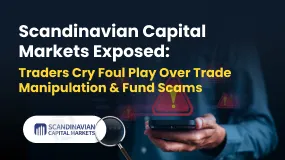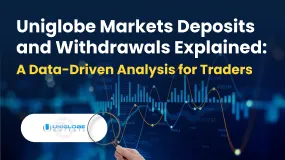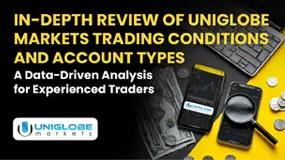简体中文
繁體中文
English
Pусский
日本語
ภาษาไทย
Tiếng Việt
Bahasa Indonesia
Español
हिन्दी
Filippiiniläinen
Français
Deutsch
Português
Türkçe
한국어
العربية
Why is the Nigerian government against Crypto currency trading in Nigeria?
Abstract:The Nigerian government has been opposed to legalizing Crypto currency in Nigeria based on a number of effects it may have on the Nigerian economy, especially devaluation of Naira and increase in inflation. To deter the further proliferation of Crypto Currency in Nigeria, the Nigerian government introduced her own digital currency known as the Central Bank Digital Currency (CBDC) which would allow the government to control the citizens transactions unlike other decentralized Crypto currencies.
By: Damian Okonkwo
Often it appears to unimaginable that the Nigerian government has adopted within the country a Central Bank Digital Currency (CBDC) but at the same time still prohibits the use of other digital currencies such as Bitcoin and Altcoins within the country. However, there are a number of possible reasons why the Nigerian government is opposed to legalizing Crypto currency trading within the country. Below are a number of possible reasons why the Nigerian government is opposed to Crypto currency in Nigeria.
A. Totally Decentralized
Crypto currency as we know it is a totally Decentralized financial system for sending and receiving money. It hides the identity of both the sender and receiver and cannot be controlled by the government and Central banks. This means that the Nigerian government can no longer freeze at will the account of any citizen she indicts. Obviously, the government would like to retain control over the citizens money especially for political reasons too.
B. Money Laundering
Very often, one of the dominant reason repeatedly offered by the Nigerian government for proscribing Crypto currency is that it gives room for money laundering due to its decentralized nature. The Nigerian government has very often expressed concerns that many terrorist groups existing within the country and other unscrupulous dealers often use Crypto currency transactions as a means for sponsoring their activities. Equally the government believe that it gives fraudsters the opportunity for eloping with their loot. Hence, the government of Nigeria see Crypto currency as supporting looting and promoting money laundering.
C. Devaluation of Naira
Another interesting reason why the Nigerian government has been consistently opposed to Crypto currency trading within the country is its possible effects on the Nigerian economy. With the rapid embrace of Crypto Currency in Nigeria, it was discovered that the citizens no longer store their values in Naira but in Crypto especially in USDT. Banks were greatly alarmed as more than 55% of Naira deposited with them were immediately converted to Crypto which lies beyond their control. The effect of this has been the drastic devaluation of Naira.
D. Supports Inflation
Similarly, another sad result of the boom in Crypto currency trading in Nigeria is that it promotes inflation. This means reduction in the 'buying power' for the Nigerian naira. Thus as the citizens daily embrace USDT and other cryptocurrencies, the Nigerian naira keeps loosing value and buying power within and outside the country. The prices of goods and services within the country therefore skyrockets daily.
Disclaimer:
The views in this article only represent the author's personal views, and do not constitute investment advice on this platform. This platform does not guarantee the accuracy, completeness and timeliness of the information in the article, and will not be liable for any loss caused by the use of or reliance on the information in the article.
Read more

Scandinavian Capital Markets Exposed: Traders Cry Foul Play Over Trade Manipulation & Fund Scams
Does Scandinavian Capital Markets stipulate heavy margin requirements to keep you out of positions? Have you been deceived by their price manipulation tactic? Have you lost all your investments as the broker did not have risk management in place? Were you persuaded to bet on too risky and scam-ridden instruments by the broker officials? These are some burning issues traders face here. In this Scandinavian Capital Markets review guide, we have discussed these issues. Read on to explore them.

Uniglobe Markets Deposits and Withdrawals Explained: A Data-Driven Analysis for Traders
For any experienced trader, the integrity of a broker isn't just measured in pips and spreads; it's fundamentally defined by the reliability and transparency of its financial operations. The ability to deposit and, more importantly, withdraw capital seamlessly is the bedrock of trust between a trader and their brokerage. When this process is fraught with delays, ambiguity, or outright failure, it undermines the entire trading relationship. This in-depth analysis focuses on Uniglobe Markets, a broker that has been operational for 5-10 years and presents itself as a world-class trading partner. We will move beyond the marketing claims to scrutinize the realities of its funding mechanisms. By examining available data on Uniglobe Markets deposits and withdrawals, we aim to provide a clear, evidence-based picture for traders evaluating this broker for long-term engagement. Our investigation will be anchored primarily in verified records and user exposure reports to explain the Uniglobe Mar

In-Depth Review of Uniglobe Markets Trading Conditions and Account Types – An Analysis for Traders
For experienced traders, selecting a broker is a meticulous process that extends far beyond headline spreads and bonus offers. It involves a deep dive into the fundamental structure of a broker's offering: its regulatory standing, the integrity of its trading conditions, and the flexibility of its account types. Uniglobe Markets, a broker with an operational history spanning over five years, presents a complex case study. It offers seemingly attractive conditions, including high leverage and a diverse account structure, yet operates within a regulatory framework that demands intense scrutiny. This in-depth analysis will dissect the Uniglobe Markets trading conditions and account types, using data primarily sourced from the global broker inquiry platform, WikiFX. We will explore the Uniglobe Markets minimum deposit, leverage, and account types to provide a clear, data-driven perspective for traders evaluating this broker as a potential long-term partner.

In-Depth Review of MH Markets Trading Conditions and Leverage – An Analysis for Experienced Traders
For experienced traders, selecting a broker is a meticulous process that extends far beyond marketing claims and bonus offers. It involves a granular analysis of the core trading environment: the quality of execution, the flexibility of leverage, the integrity of the regulatory framework, and the suitability of the conditions for one's specific strategy. MH Markets, a broker with a 5-10 year operational history, presents a complex and multifaceted profile that warrants such a detailed examination. This in-depth review dissects the MH Markets trading conditions and leverage, using primary data from the global broker inquiry app, WikiFX, to provide a clear, data-driven perspective. We will analyze the broker's execution environment, account structures, and regulatory standing to determine which types of traders might find its offering compelling and what critical risks they must consider.
WikiFX Broker
Latest News
Gratitude Beyond Borders: WikiFX Thank You This Thanksgiving
MH Markets Commission Fees and Spreads Analysis: A Data-Driven Breakdown for Traders
Alpha FX Allegations: Traders Claim Account Blocks, Withdrawal Denials and Security Breaches
How to Become a Profitable Forex Trader in Pakistan in 2025
CFTC Polymarket Approval Signals U.S. Relaunch 2025
Zipphy Exposed: No Valid Regulation, Risk Warning
KEY TO MARKETS Review: Are Traders Facing Withdrawal Delays, Deposit Issues & Trade Manipulation?
FCA Consumer Warning – FCA Warning List 2025
Australia’s Fraud-Intel Network Exposes $60M in Scams
RM104.9 Million Gone: Why Hundreds Are Demanding a Full MACC Investigation
Currency Calculator



